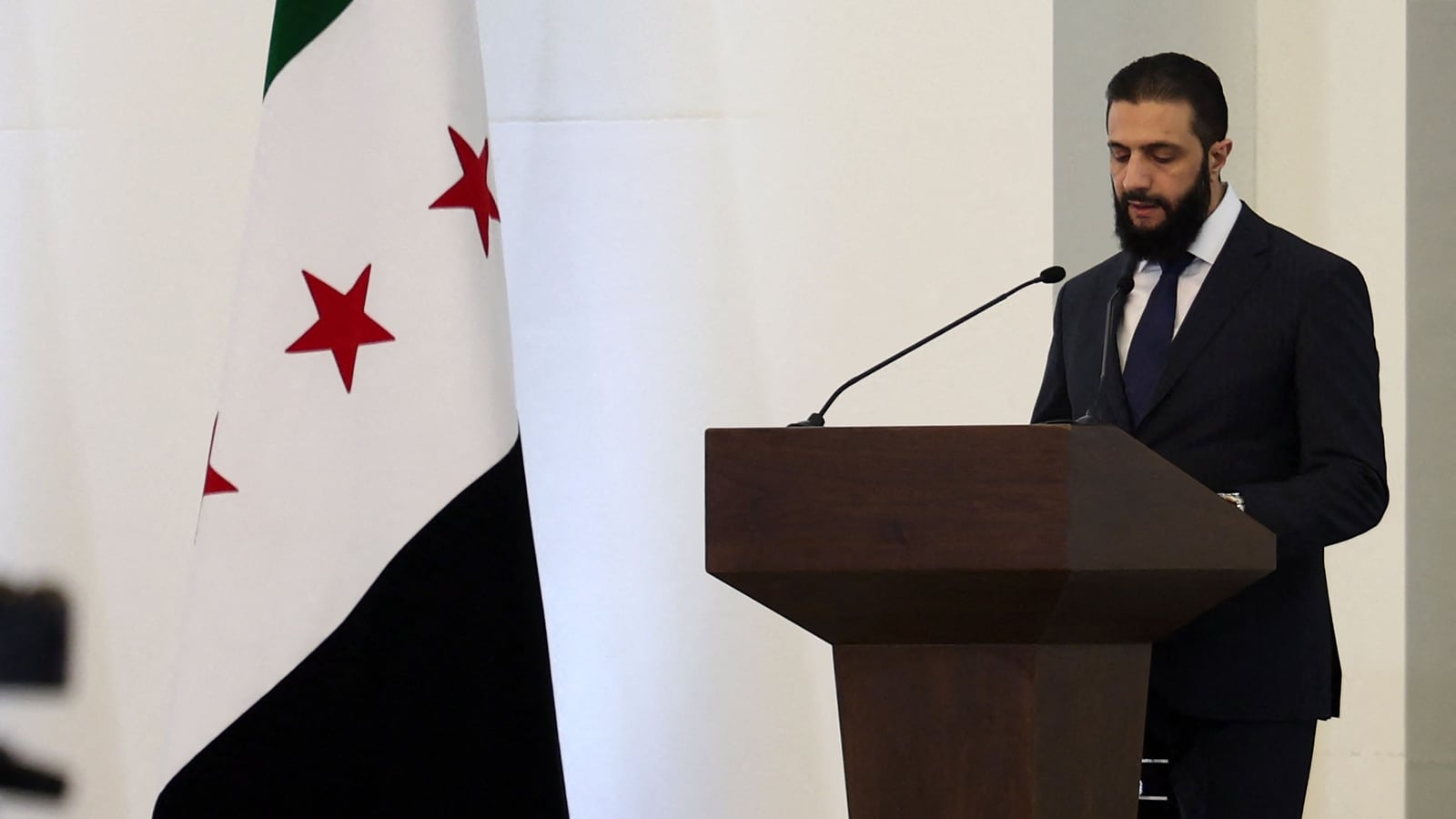During much of the first half of this year, things were looking up for Ahmed al-Sharaa. Syria’s new president was basking in Donald Trump’s decision to lift sanctions on his country. After more than a decade of civil war, Damascus and other cities had begun to hum again. Investors from the Gulf and Turkey piled in. Our polling showed that the public mood was buoyant. After ousting Bashar al-Assad’s regime, Mr Sharaa, a former jihadist, had not imposed the Taliban-style rule that some had feared. The vast majority of Syrians said they were optimistic for the future.
Unfortunately, as the euphoria fades, Syrians are growing increasingly frustrated. Mr Sharaa has disappointed them by failing to ease the sectarian divisions that have long made their country a tinderbox. He exhibits creeping authoritarianism. Now civil-society activists are building an organised opposition. How Mr Sharaa responds to this political challenge will define both his presidency and his country’s future.
The president has often acted pragmatically. But there have been terrible lapses. In March, when Sunni militias linked to Mr Sharaa’s forces slaughtered around 1,400 people in coastal Latakia, he was slow to respond. The region is the heartland of Syria’s Alawite minority, the sect from which Mr Assad and many of his loyalists came. Four months later clashes in Suwayda, a province dominated by the Druze, a mystical religious minority, ended with massacres, some by troops loyal to the government. Again Mr Sharaa was unable—or unwilling—to stop the violence. The atrocities there gave Israel, which has a Druze minority, an excuse to interfere. It launched strikes on the province and on Damascus.
Signs of authoritarianism are hard to miss. When Mr Sharaa ruled Idlib province during the final years of the Assad regime, he ran a competent government that oversaw a flourishing economy. But he also became increasingly brutal, imprisoning many of his critics. He has brought some aspects of that leadership to the presidency, centralising power among a small group of loyalists, leaning on Sunni tribes (he is Sunni) and sidelining minorities. His supporters sometimes argue that broad representation is a luxury in a country ravaged by war, and that narrow rule is the price of efficiency. Centralisation, however, has not brought good governance, let alone security.
A loose coalition of activists, some of them veterans of the anti-Assad era, has now begun pressing for urgent political reform. They have called for Mr Sharaa’s hastily drafted constitutional declaration to be rewritten so as to allow the formation of political parties and to give more scope for civil society to operate. It is the first stirring of co-ordinated resistance to the regime.
Mr Sharaa has yet to lock up any of his new opponents. But he should do more than tolerate critics; he should welcome them and bring them into his government. Syria needs an open constitutional process, a deal with the Kurds, broader leadership in the security forces and an electoral framework to ensure that the committees choosing members of an interim parliament in September do not opt overwhelmingly for hard-line Sunnis.
Towards the end of Mr Sharaa’s rule in Idlib, protesters chanted for his downfall. His critics have not yet gone that far. He has no replacement, and a power vacuum in a country hollowed out by civil war would be dangerous. Yet, in a functioning polity, the opposition can be a stabilising force rather than a threat. For fragile, divided Syria, that is the best chance of avoiding another descent into civil war.


